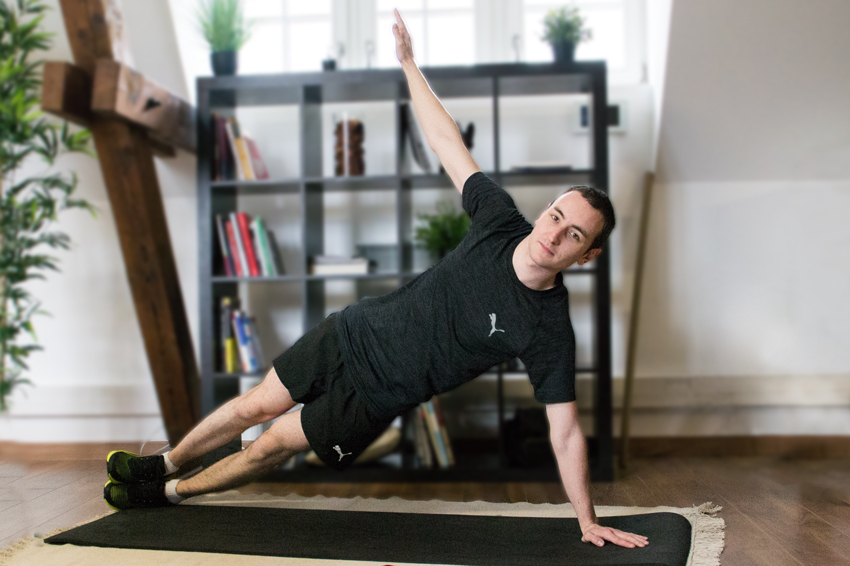You might have heard that working out on an empty stomach is an effective way to blast fat, so early in the morning, you start your workout without getting a single bite to eat beforehand. Do you know about the consequences this can have for your body? The FizzUp trainer is debunking three myths about working out on an empty stomach to make your fitness training even more effective.
Your muscles work like a motor. The bigger they are, the more energy they consume. If you have little to no energy, your muscles will never grow.
When you get up in the morning, your blood sugar levels have dropped, which means that your energy stores are low. Because these stores don’t contain enough energy to meet the demands of physical activity, your body will look for other sources of energy. It draws on your body fat by turning it into sugar, then supplies it to your muscles as fuel. Healthy muscle contraction requires a high energy intake.

But that’s not all. During a workout on an empty stomach, your body will also look for energy by drawing on the fat and protein in your muscles. Instead of losing only fat, you hinder muscle growth by working out on an empty stomach because you consume the proteins they need in order to construct. This is called the catabolism of muscle (or muscle breakdown): a lack of nutrients that leads to muscle degradation. They shrink in size, resulting in reduced calorie consumption. If you want to show off a muscular physique and make it easier for your muscles to burn more calories during exercise, stop working out on an empty stomach: doing a workout that’s just as hard will only burn fewer calories if you haven’t eaten anything.
When you start working out on an empty stomach, you put your body at risk of:

The best way to burn calories while doing a physical activity is to do a high-intensity workout. But when you’ve got an empty stomach, there’s no way you’ll be able to do high-intensity exercises. The exercises you do will be gentler and less effective, never having the same impact as doing an intense workout after you eat. You won’t get as much out of it and will slow down your body’s transformation.
Working out on an empty stomach even encourages the “yo-yo” effect because it enters your body into a circle of deprivation, while subjecting it to stressful conditions. It will store more fat and sugar after your next meal in order to cope with physical demands the next time you work out on an empty stomach. Like diets plans, as soon as you deprive your body, you’re going to suffer the consequences sooner or later. Ideally, when you work out in the morning and want to lose weight, you should eat the least amount of carbohydrates and proteins you need to help you do a high-intensity workout. This will boost your metabolism for the rest of the day and make it so that your body consumes more calories and continues to burn fat for up to 48 hours after your workout. This is known as the afterburn effect.

Working out on an empty stomach does nothing to speed up your metabolism (which is the energy your body consumes on a daily basis). In fact, it slows it down and makes it harder for your body to burn fat. It consumes fewer calories than if you eat something in the morning. So don’t miss out on the most important meal of the day: breakfast. If you have difficulty eating a full meal when you get up, the least you can do is have a small snack before you work out.
Working out on an empty stomach isn’t a long-term solution to help you lose weight or boost your athletic performance. It works against your body’s transformation. So make the right decision to give your body the fuel it needs after a good night’s sleep to make your FizzUp workout as effective as it can get!
Join the 7 million users already registered on FizzUp
Join us